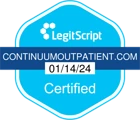How a PHP for Polydrug Addiction Can Help You Heal
Learn more about the benefits of treatment at a PHP for polydrug addiction and how Continuum Outpatient Center can help.
Written and medically reviewed by the clinical team at Continuum Outpatient Center, including licensed therapists, addiction specialists, and medical professionals.
What is Polydrug Addiction?
Polydrug addiction is a complex and hazardous form of substance abuse. It occurs when a person habitually misuses multiple types of drugs together or in sequence.
This practice increases the risks associated with drug use. This is because the combined effects of different substances can lead to unpredictable and severe physical and psychological consequences.
- Enhance the desired effects
- Reduce unwanted side effects
- Experiment with different drug interactions

Complicating Treatment Efforts
This behavior can complicate treatment efforts, as it involves multiple substances that may have negative interactions.
- Heightened risks of overdose
- Mental health disorders
- Other serious health complications
The nature of these drug interactions is unpredictable. This makes polydrug addiction a dangerous and challenging issue in the field of addiction treatment and public health.
What is a PHP for Polydrug Addiction?
A PHP, or partial hospitalization program, is a type of intensive outpatient treatment used for various forms of addiction, including polydrug addiction. It’s a step down from inpatient care but more intensive than traditional outpatient programs.
In a PHP, patients often spend several hours a day, several days a week, at a treatment facility. This schedule allows them to receive comprehensive and intensive treatment while still living at home and maintaining some daily routines.
A PHP for polydrug addiction is often made up of several components and structures, including:
More Relaxed Schedules
Patients often attend the program for several hours a day, five to seven days a week. This schedule is less intensive than inpatient treatment but more so than standard outpatient programs. This enables individuals to maintain a semblance of their daily lives and keep up with regular responsibilities.
Regular Medical Check-Ups
Regular medical check-ups are part of the program to:
- Monitor health
- Manage medications
- Address any physical complications arising from polydrug use
Detoxification
If needed, a PHP for polydrug addiction may provide support for detoxification. This is especially necessary when patients are dependent on multiple substances that could lead to complex withdrawal symptoms.
Individual Therapy
One-on-one sessions with a therapist or counselor are a core component of a PHP for polydrug addiction.
Therapies like cognitive behavioral therapy (CBT) help patients:
- Understand their addiction
- Develop coping strategies
- Address underlying issues like trauma or mental health disorders
Group Therapy
Group sessions provide peer support and opportunities to learn from others’ experiences. These sessions might focus on various themes, such as:
- Relapse prevention
- Life skills
- Specific issues related to polydrug addiction
Family Therapy
Involving family members can be crucial for recovery. It provides an opportunity to repair relationships and build a support network.
At Continuum Outpatient Center, we approach healing with our family system treatment modality, as we know that addiction isn’t a disease that solely impacts that individual – it extends to their loved ones as well.
This enables families to mend tethered bonds, develop a sense of mutual understanding, and learn how to have healthy relationships without enabling or overstepping potential boundaries.
Educational Workshops
These workshops cover topics like:
- The science of addiction
- The specific risks of polydrug use
- Healthy living
- Stress management
Holistic and Complementary Therapies
Programs often incorporate complementary activities to support well-being and provide alternative coping mechanisms.
These activities can include:
- Yoga
- Meditation
- Art therapy
- Music therapy
Relapse Prevention Planning
A PHP for polydrug addiction often includes training and planning for relapse prevention. This equips patients with strategies to maintain sobriety after completing the program.
Aftercare Coordination
Planning for ongoing support after the PHP is critical. This may include referrals to outpatient therapy, support groups, or other community resources.
Case Management and Social Support
Case managers may help with practical aspects, such as:
- Housing
- Employment
- Connecting with community resources
Skill Development
Programs may offer training in life skills, job readiness, and other areas to help patients rebuild their lives and avoid situations that could lead to relapse.
The goal of a PHP for polydrug addiction is to provide a structured and supportive environment where people can address the complexities of their addiction while rebuilding their lives in the outside world.
The multifaceted approach ensures that various aspects of a person’s addiction and recovery process get addressed.
Who is Eligible for PHP for Polydrug Addiction?
Determining eligibility for a PHP for polydrug addiction involves a thorough assessment of the person’s physical, psychological, and social needs. This process is critical to ensure that the PHP provides the appropriate level of care for the patient’s specific situation.
Here are the key criteria and assessment methods:
Severity of Addiction
The level of dependence on multiple substances is evaluated. A PHP is often suitable for people with moderate to severe addiction who need more support than typical outpatient programs but not the 24-hour supervision of inpatient settings.
Medical and Psychiatric Stability
Patients must be medically and psychiatrically stable enough to take part in a PHP for polydrug addiction. This means that they don’t need intensive medical or psychiatric care that can only be provided in an inpatient setting.
Withdrawal Risk
The risk of withdrawal symptoms, especially when dealing with multiple substances, is assessed. If a patient is at high risk of severe withdrawal that needs medical intervention, they may first need a medically supervised detoxification before entering a PHP.
Co-Occurring Disorders
Many people with polydrug addiction have co-occurring mental health disorders. A PHP for polydrug addiction assesses these conditions to ensure they can provide integrated treatment addressing both conditions.
Support System
The availability of a supportive environment outside the program gets considered. A stable home environment and a support network can be crucial for the success of PHP treatment.
Motivation and Readiness for Treatment
The person’s willingness to actively take part in the program and adhere to treatment protocols is crucial. Motivation and readiness for change are significant predictors of treatment success.
Prior Treatment History
Previous treatments and their outcomes may be reviewed. This helps in understanding what approaches have or haven’t worked in the past, aiding in tailoring the PHP to the person’s needs.
Safety and Behavioral Concerns
Assessment ensures that the patient doesn’t pose a risk to themselves or others and can take part in group settings without disruptive behavior.
The complexity of multiple substance dependencies is assessed through a combination of medical evaluations, psychological assessments, and detailed substance use history.
This comprehensive approach helps in understanding:
- The full scope of the addiction
- Any underlying or co-occurring issues
- The best course of action for treatment in a PHP setting
Primary Benefits of PHP for Polydrug Addiction
A PHP for polydrug addiction provides a structured treatment environment similar to inpatient care, but allows patients to return home each day. This helps them to gradually reintegrate into their daily lives.
More In-Depth Treatment
The intensive nature of a PHP often involves daily therapy sessions. This provides robust support and enables more in-depth treatment of complex addiction issues.
Addressing More Than Just Addiction
A PHP for polydrug addiction address not only addiction but also:
- Co-occurring mental health disorders
- Physical health issues
- Social or behavioral problems
We know that addiction doesn’t happen in a vacuum. By looking at the whole-person, a foundation can be laid for sustainable recovery and overall health and wellness.
Peer Support from Group Therapy
Group therapy sessions offer peer support and guidance. It can reduce feelings of isolation and allow patients to learn and grow from each other’s experiences.
Enhancing Support Through Family Involvement
As aforementioned, involving family members in therapy enhances support systems and helps repair relationship dynamics affected by addiction.
Enhanced Efficacy in Specific Scenarios
A PHP for polydrug addiction is particularly effective for people with a moderate to severe level of polydrug addiction who need intensive treatment but not 24-hour supervision.
A PHP serves as an excellent transitional step for patients moving from inpatient treatment to less intensive outpatient care. It provides a “middle ground” to ensure necessary support.
For people who’ve experienced relapses, the intensive and comprehensive nature of a PHP for polydrug addiction can offer the necessary support to break the cycle of addiction.
When Alternative Treatments Might Be More Suitable
Below are some scenarios in which other treatments might be more effective:
- Patients who need a medically supervised detoxification might first need inpatient care.
- People with severe co-occurring psychiatric conditions might benefit more from inpatient treatment where psychiatric care is more intensive.
- If a patient poses a safety risk to themselves or others, a more controlled inpatient environment might be necessary.
Integration of Services in PHP for Polydrug Addiction
Below is an overview of how a PHP for polydrug addiction can integrate various services to enhance treatment outcomes:
Medical Services
In a PHP for polydrug addiction, the integration of medical services is a cornerstone of effective treatment. This comprehensive approach combines regular health assessments, medication management, and monitoring of withdrawal symptoms to address complex issues arising from multiple substance dependencies.
Medical professionals work closely with therapists and counselors to ensure a cohesive treatment plan that addresses both the physical and psychological aspects of addiction. This integrated care is vital for managing the multifaceted health concerns of polydrug users.
Such a holistic approach not only helps stabilize the patient physically but also lays a strong foundation for the therapeutic interventions that follow. This ensures a more effective and personalized treatment journey.
Counseling and Therapy
In a PHP for polydrug addiction, the integration of counseling and therapy services is pivotal to address the multifaceted challenges presented by this complex condition. These programs often use a blend of individual and group therapy sessions.
They employ a range of evidence-based practices, including:
- Cognitive behavioral therapy (CBT)
- Dialectical behavior therapy (DBT)
- Motivational interviewing
Individual and Group Therapy
Individual therapy offers a personalized space for clients to:
- Delve into the underlying causes of their addiction
- Work through personal challenges
- Develop coping strategies
Group therapy, on the other hand, fosters a sense of community and mutual support. This allows clients to share experiences and learn from others facing similar struggles.
Importance of a Comprehensive Treatment Approach
- Co-occurring mental health conditions
- Emotional regulation
- Life skills development
The synergy of diverse therapeutic techniques within a PHP is critical in ensuring a robust and effective treatment plan for those grappling with the complexities of polydrug addiction.
Accommodating the Challenges of Polydrug Use
A PHP for polydrug addiction is specifically designed to handle the complexities associated with using multiple substances.
This includes:
- Managing cross-tolerance
- Withdrawal symptoms from different substances
- Addressing the broader range of psychological and behavioral issues that come with polydrug use
The integration of various therapeutic approaches ensures a holistic treatment that is more likely to lead to successful recovery and long-term sobriety.
Common Co-Occurring Mental Health Issues in Polydrug Addiction
Polydrug addiction often co-occurs with various mental health issues. This creates a complex clinical picture that requires comprehensive and integrated treatment.
These co-occurring disorders can range from mood and anxiety disorders to more severe psychiatric conditions. A PHP is particularly well-equipped to address these dual diagnoses effectively due to their multidisciplinary and intensive approach.
Some conditions that can co-occur with polydrug addiction include:
Depression and Bipolar Disorder
Mood disorders are common among people with polydrug addiction. The use of multiple substances can be a form of self-medication for underlying mood swings or depressive episodes.
Anxiety Disorders
Anxiety disorders often coexist with substance use disorders. These include:
- Generalized anxiety disorder
- Panic disorder
- Social anxiety disorder
Individuals with anxiety will sometimes use substances to self-medicate.
Post-Traumatic Stress Disorder (PTSD)
A significant number of people with polydrug addiction have a history of trauma, leading to PTSD. Often, individuals with unresolved trauma will use substances as an unhealthy coping mechanism.
Personality Disorders
Conditions like borderline personality disorder and antisocial personality disorder are more prevalent among those with substance use disorders.
Schizophrenia and Other Psychotic Disorders
Although less common, some people with polydrug addiction may also struggle with psychotic disorders.
The Role of Partial Hospitalization Programs in Dual Diagnosis
This level of care is often ideal for effectively managing the complexities of dual diagnoses. It provides the intensive treatment necessary while also supporting the patient’s gradual reintegration into everyday life.

PHP for Polydrug Addiction at Continuum Outpatient Center
At Continuum Outpatient Center, our focus is on delivering a patient-centered approach to care. We use evidence-based treatment methods to ensure the best care for those struggling with polydrug addiction.
Our team is made up of master-level counselors who are well-versed in trauma-informed care. This allows us to effectively manage mental health issues alongside addiction.
About Our Services
At Continuum, we’re proud to offer a range of intensive outpatient programs for both mental health and substance use disorders in addiction to our PHP. For additional outpatient services, inquire about our telehealth wellness opportunities. We’re committed to creating healthier communities through accessible healthcare — one individual at a time.
Our Philosophy
Our philosophy is client-centered and clinically driven. We place a greater emphasis on treating dual diagnosis and mental health concerns, rather than solely focusing on the traditional 12-Step approach.
This tailored strategy ensures that we meet the individual needs of each client, providing them with the specific support and treatment necessary for their recovery journey.
Contact Continuum Outpatient Center Today
If you or a loved one are interested in a PHP for polydrug addiction, reach out to us today for more information. We’re here to help you live the happy, healthy, and fulfilling life you deserve.


